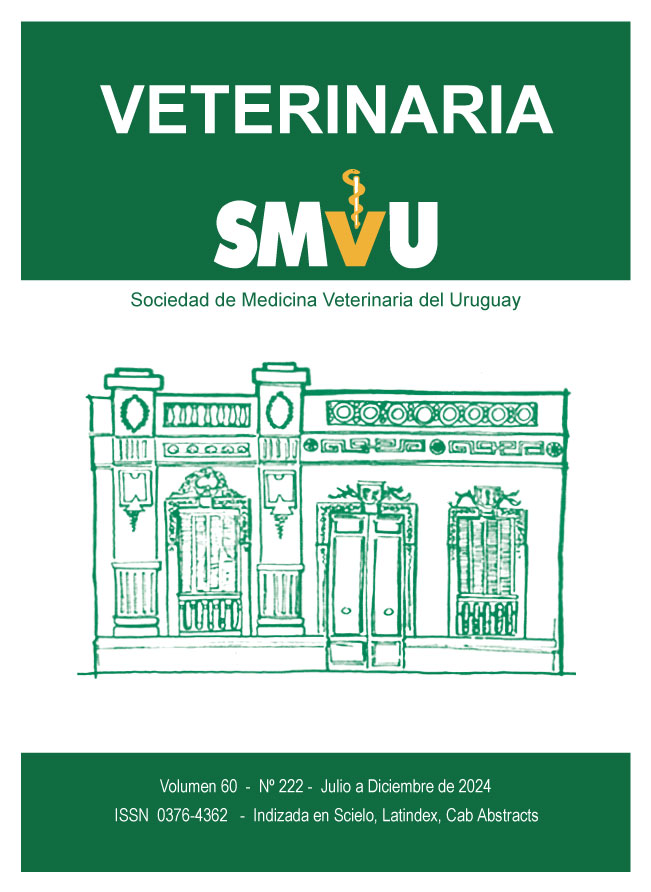American foulbrood (Paenibacillus larvae) monitoring in apiaries of the east-northeast region of Uruguay
DOI:
https://doi.org/10.29155/VET.60.222.5Keywords:
Apiários, Loque americana , Mel, Monitoramento, Paenibacillus larvaeAbstract
American foulbrood (AF) (Paenibacillus larvae) is a bacterial disease that affects bees (Apis mellifera), particularly their larvae stage, and can cause serious effects on the health of hives. The spores can remain latent in honey without developing symptoms, so it is possible to isolate the bacteria from apparently healthy colonies. The presence of spores in honey is also an important limitation for international trade. In Uruguay this disease is currently with a low prevalence. The objective of this work was to made an AF surveillance of honey in the east-northeast area of the country, where clinical cases of this disease have never been reported. During the 2021-2022 harvest season (September-February), honey samples (n=80) were collected from the departments of Rivera, Cerro Largo, Treinta y Tres, Rocha, Lavalleja and Maldonado. In none of the honey samples were isolated colonies of P. larvae. The results indicate that it is possible to establish AF-free zones. Research and extension activities with beekeepers are essential to maintain and develop good beekeeping practices linked to the health of bees, as well as to obtain differentiated honeys that may have better conditions for export to specific markets.
Downloads
Metrics
Published
How to Cite
Issue
Section
License
Copyright (c) 2024 Sociedad de Medicina Veterinaria del Uruguay

This work is licensed under a Creative Commons Attribution 4.0 International License.











